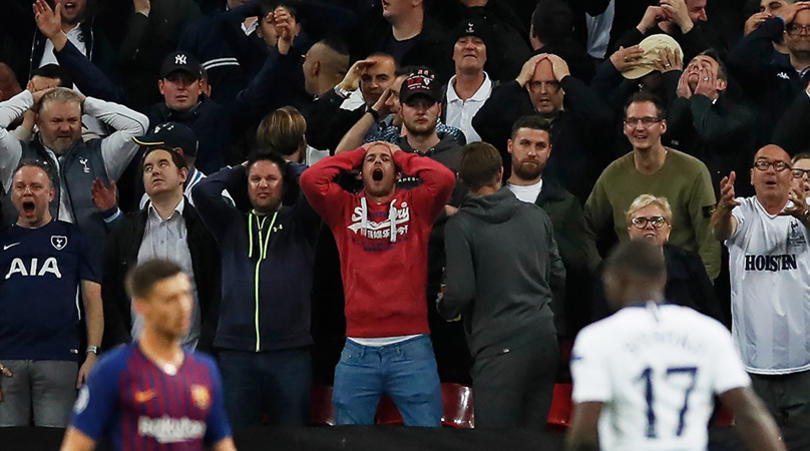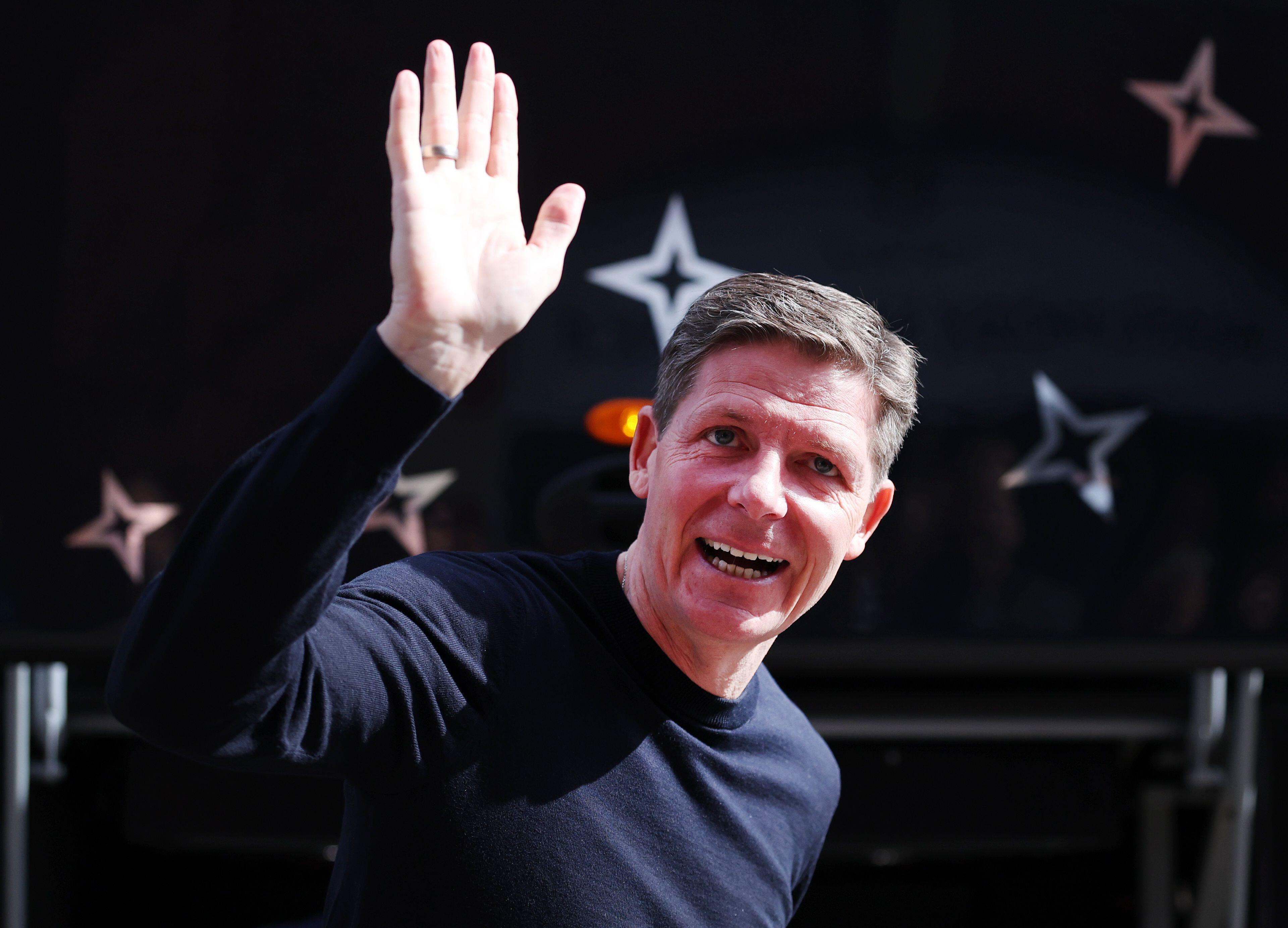The Nazis at Tottenham: Why did the swastika fly at White Hart Lane?
Spurs bid a tearful farewell to the ground they called home for 118 years – but one match it hosted won't be remembered with such affection. John Harding remembers the controversial England vs Germany friendly on this day in December 1935
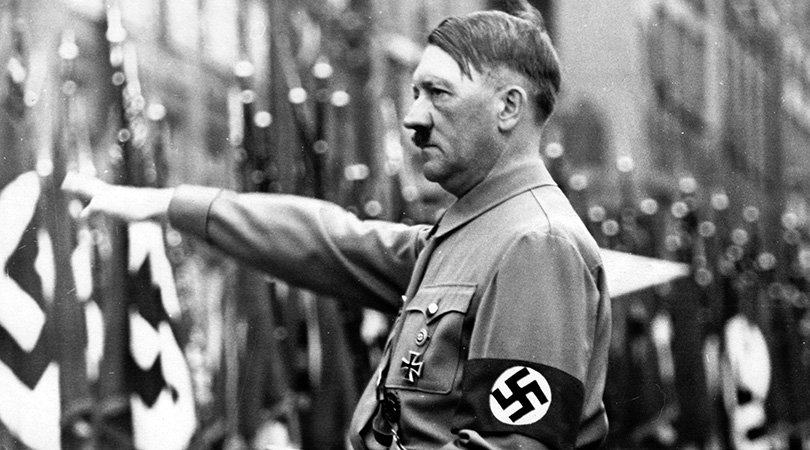
“Herr Hitler has sent us no message. We are here as sportsmen to play against the best footballers in the world.”
Fritz Szepan, Germany captain. December 4, 1935. White Hart Lane. England vs Germany.
As the Nazi flag flutters over White Hart Lane, thousands of Germans waving swastikas belt out their national anthem with gusto. To the lusty strains of Deutschland Uber Alles, the German team raise their arms in a Heil Hitler salute. The crowd – both German and some English – respond with the fascist gesture.
It may sound like a scene from a horrendous parallel universe: one in which the Allies have lost the war and everyone from Land’s End to John O’Groats is forced to speak German and praise the Fuhrer. But, incredibly, this actually happened.
On December 4, 1935, England played Germany in north London amid a storm of protest from Jewish groups. Hitler himself was following the game with interest back in Germany, but during a deeply uncertain time, few in England knew how best to react. It was a game that divided the country, and at its core was a question that the British public was asking itself, but could not yet answer: how bad is this Adolf Hitler bloke?
It may be a no-brainer in retrospect, but in 1935 the National Socialists had only been in power for two years, and the extent of Hitler’s evil intentions were up for debate.
Widespread opposition
The best features, fun and footballing quizzes, straight to your inbox every week.
The argument was still raging a year later, when the Berlin Olympics prompted a worldwide fit of hand-wringing and brow-wrinkling over how to deal with the Nazis. Should athletes salute Hitler? Should countries boycott the Games, as Germany increasingly began to persecute Jews and other ‘undesirables’?
Some in America believed that the US competitors had to withdraw, but it’s easy and convenient to forget that many others had anti-Semitic views themselves. Avery Brundage, of the US Olympic Committee, went as far as saying that a “Jewish-Communist conspiracy” was behind calls for a stay-home.
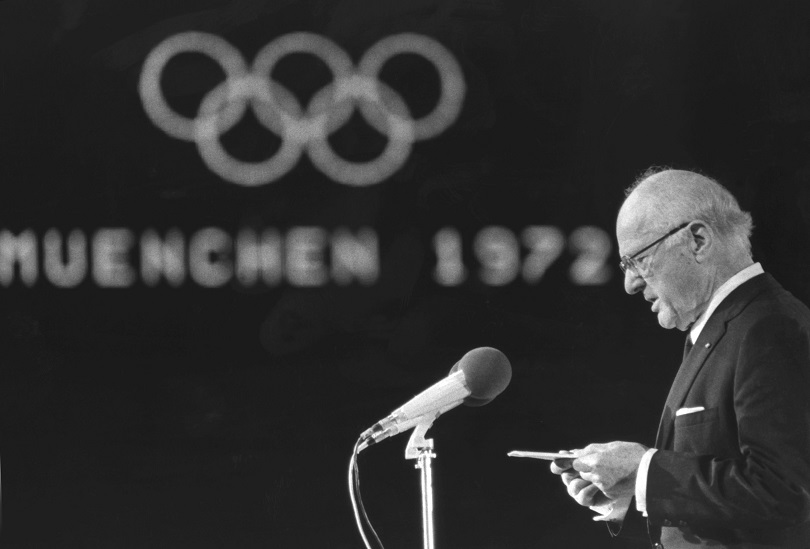
In England, the idea of a game of football between England and Germany brought similar off-colour opinions to the surface. It’s a story from which surprisingly few people emerge with any credit – apart from an apolitical German midfielder, a toolmaker from Shoreditch and a number of plucky anti-Nazi protestors.
White Hart Lane was announced as the venue for the match in October 1935, but within a few weeks the fixture was mired in controversy. “Jews and the England match,” screamed the headline of the Tottenham Weekly Herald. “Letters of protest have been received by the England FA and the Spurs,” explained the article. “The Jews complain of the Nazi treatment of their compatriots in Germany and demand that the match be cancelled.”
The Nuremburg Laws of September 1935 had just stripped Germany’s Jewish citizens of many of their basic human rights, while Catholics and Trade Unionists – suffering under the regime since Hitler had seized power in 1933 – also protested.
War of words
Spurs, even in the 1930s, were considered to have a sizeable Jewish support, and the choice of venue was insensitive, if not sinister (it was White Hart Lane’s turn for a match, regardless of opposition). “If no action is taken, we can visualise from the present agitation amongst Jewish, Catholic and democratic organisations that the Nazis will be in for a very hot time,” said the secretary of the Edmonton and District Sunday Football League. “Tottenham Hotspur will be holding the bag for Nazi advertisement.”
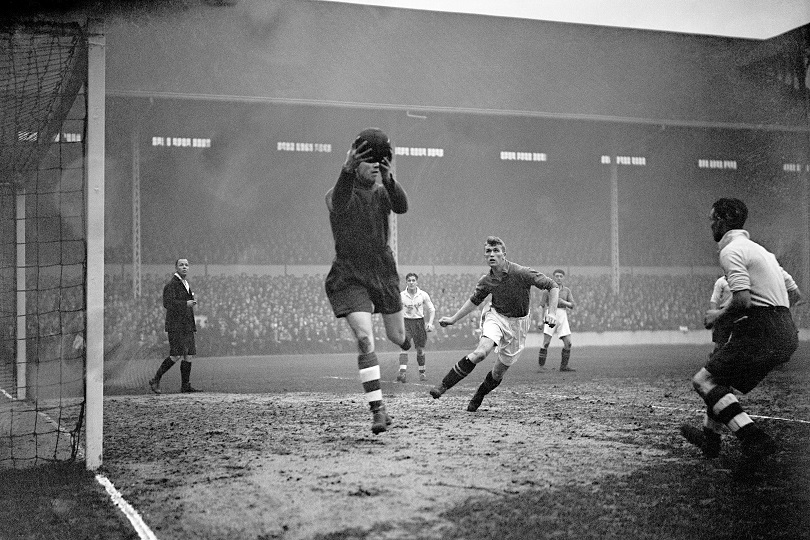
But their objections were met with cynicism. “Someone within the inner councils of the Spurs told me this week that the size of this [Jewish] following was not nearly so large as was popularly imagined,” wrote the Herald’s sports editor. The letters printed in the paper were overwhelmingly against the Jewish view: one urged them to allow English sportsmen to enjoy “their favourite pastime without interference”, while another complained: “It’s going too far when the Jews try to dictate to us. It will be the Jews who cause another war between England and Germany.”
Some even issued threats similar to those of Propaganda Minister Joseph Goebbels, in Berlin. “The Jews apparently do not realise they are guests in England,” wrote a reader. “They are only making things worse for themselves.” And following rumours that at an upcoming Spurs match 6,000 Jews would walk out in protest, one of the club’s oldest season ticket holders slammed back in the Herald with an article headlined: ‘England For England’.
“I am in every way with them that they should walk out – but with a one-way ticket and not come back. The Spurs will always find enough English support without worrying about the ‘Yids’... it will be very nice to watch an English match with only English supporters.”
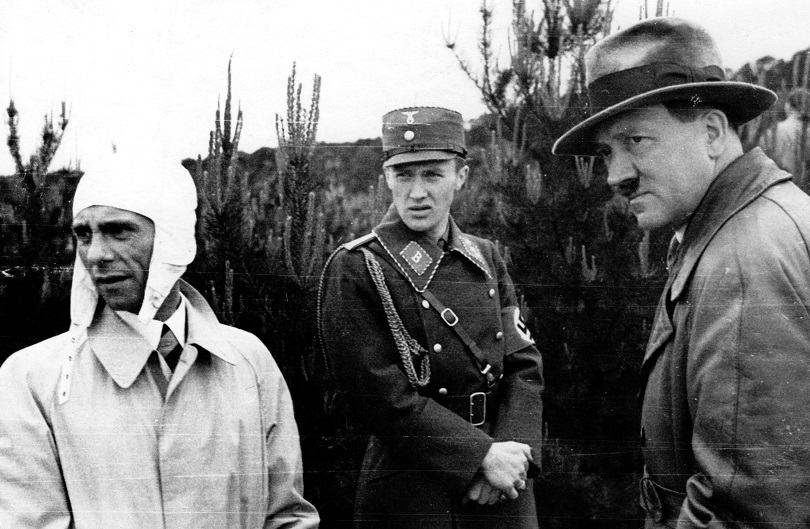
Ugly clashes looked likely, and then news emerged that was certain to worsen the situation. ‘Hans Across The Sea!’ tromboned the headline: 10,000 German supporters were on their way to watch the game.
“Everything has been done to make us feel comfortable”
Though it wasn’t clear at the time, the German fans were organised and funded by the Nazi ‘Strength Through Joy’ movement, set up as a tool to promote the advantages of National Socialism to its people and the world. Those opposed to the game seized on the information, claiming that this wasn’t a sporting event – rather an opportunity for Hitler’s government to present its regime in the best possible light, and convince the English that Germany was their ally.
High-level diplomatic discussion was taking place, involving the German Ambassador, the Foreign Office, the Home Office and Joseph Goebbels. The Germans, eager to appear conciliatory, made concessions: the German team and fans would wear a low-key uniform and wouldn’t flaunt swastikas.
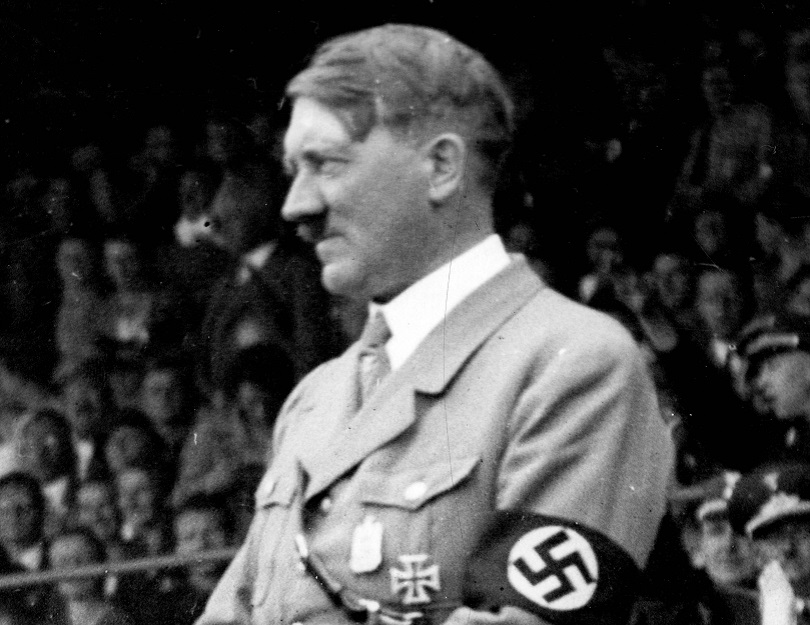
With both governments pursuing an ‘appeasement’ agenda – albeit for different reasons – the British decided to go ahead with the game. A cancellation for fear of anti-German demonstrations would represent a propaganda coup for the Nazis, it was thought, as they could blame the Jews for any trouble. Two days before the match, Home Secretary Sir John Simon informed a TUC deputation objecting to the match that he wanted to uphold England’s tradition of keeping sport and politics separate.
The British Anti-Nazi Council continued its campaign: 15,000 protest postcards were printed, as were posters concerning the alleged murder of a Jewish footballer in Germany. But public interest centred increasingly on the hordes of Germans about to flock into London, billed in the press as a “smiling army of 10,000” and “just a team who come to play sport”.
The Teutonic XI flew into Croydon airport in an aircraft adorned with a swastika on the tailfin. Their wiry skipper Fritz Szepan – nicknamed ‘Greta’ for his blond locks – became the centre of press attraction. He eschewed any political opinion and won admirers for declaring: "We have nothing to do with governments. Herr Hitler has sent us no message. We are here as sportsmen to play football against the best in the world. The game’s the thing, is it not?"
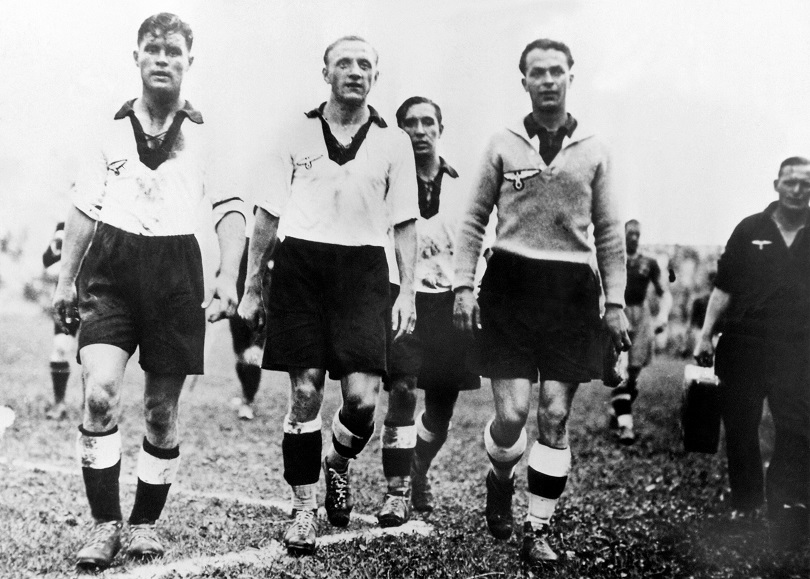
Respectful visitors
Then, on matchday, came the fans. Thousands disembarked from cruise ships in Southampton in heavy rain, while many more boarded special trains from Dover to London, arriving at Victoria and Waterloo at 5am. Each carriage was colour-coded and every German fan was ordered to stay with his or her group throughout.
Security was tight: Leicester Square was closed to the public and used as a base for 300 German sight-seeing coaches. Eight hundred guides – many of them German-Jewish refugees looking to earn some money – were employed. They were given strict instructions not to answer any political questions, while the coach drivers were given sealed route maps and warned to stay away from Whitechapel, the Jewish East End. Police cars with loudspeakers followed the visitors, barking out instructions in German as Londoners stared, bemused.
Each German was allowed to bring just 10 Marks with them, and catering was placed in the hands of Lyons and Co, a company branded in Germany as “a Jewish concern which good Nazis should not patronise”. Newspapers reported with interest about what they ate: roast beef and Yorkshire pudding, plus cabbage “cooked in German fashion”. It was also noted that there were plenty of female fans, the Daily Mail printing a photograph of “German girls as London saw them”, noting their stylish coats, cameras and “luncheon baskets”.
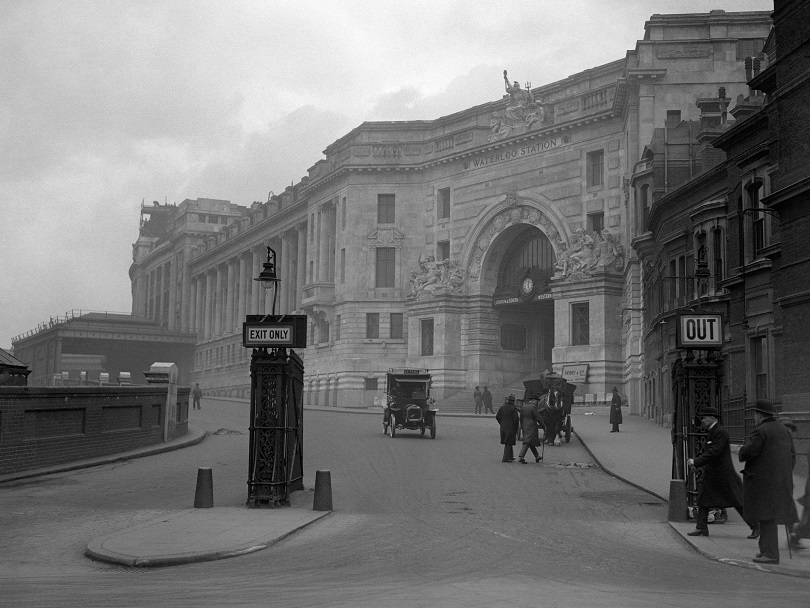
The visitors were relentlessly polite and diplomatic, refusing to return a mock Heil salute from a group of workmen, and constantly reiterating their joy at just being here. “Your London is marvellous,” said one. “Everything has been done to make us feel comfortable.”
A group even went to the Cenotaph and laid a large wreath in memory of the British dead during the First World War. It was a diplomatic offensive par excellence: a propaganda war they were winning hands down.
The turn-out
As kick-off approached, however, tension mounted. To all observers, the size of the police presence was staggering. Over 800 police – mounted, on foot, as well as Special Branch members – were on duty. A temporary police station had been set up close to the ground, while reserves were secreted in the pavilion of a neighbouring school. Policemen lined the road to the ground, while inside, they were positioned round the pitch at 10-yard intervals.
Protests took place all the way from the railway stations to White Hart Lane. A large parade of placard-wielding anti-Nazis left Bruce Grove station two hours before the match and proceeded towards the ground handing out leaflets. As they drew closer, the police moved in, tearing down the placards which proclaimed ‘Fascist Sport is Jew-Baiting’, ‘Our Goal, Peace: Hitler’s Goal, War’; ‘Hitler Hits Below The Belt’ and ‘Keep Sport Clean, Fight Fascism’.
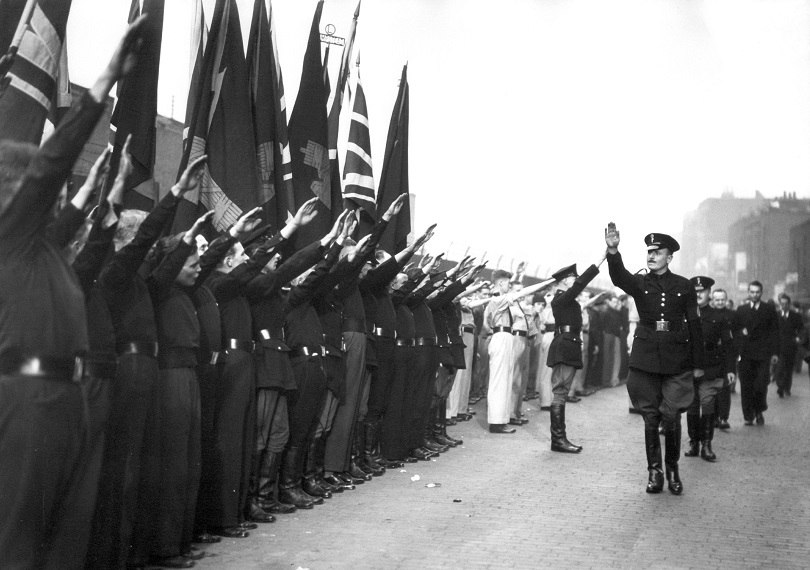
Anyone shouting slogans was arrested; leaflets were grabbed and torn up. Other protesters scattered pamphlets from trams and buses while men wearing sandwich boards proclaiming ‘Stop the Nazi Match’ chanted at the visitors. There were some scuffles with pro-Nazi sympathisers, although Oswald Mosley’s Blackshirts, the British Union of Fascists, were absent. Anti-semites, however, had painted two huge swastikas with the words ‘Perish Judah’ on hoardings close by White Hart Lane.
Congestion around the ground made journeys by car almost impossible: many German coaches took more than an hour to travel the last mile. The ground wasn’t completely full at kick-off as thousands remained in queues outside. It didn’t lead to aggravation, however: Trevor Wignall, writing in the Daily Express, stressed that “a better-tempered or more good-humoured crowd has never been gathered together”.
The 10,000 Germans were accommodated in the East Stand. As the teams ran out, they waved small flags bearing swastika symbols, despite what had been negotiated by the Government. As David Aspinell and his Friary Band from Guildford played the German national anthem, the visiting supporters were astonished and delighted. They had been under strict orders not to sing any political songs, but now responded with gusto.
"That Nazi flag is hated in this country"
And then came the salute: the German team assumed the stiff-armed position and, in response, thousands of fans – in all sections of the ground – followed suit. The band then crashed out God Save The King while above them all, over the main stand, the German swastika flag blew in the breeze.
One man in particular, though, was offended. Ernie Wooley, a tool-maker from Shoreditch and a long-time Spurs fan, had noticed that the attention of the police was wholly concentrated on the fans and that no one was watching the flag. Ernie walked to the end of the West Stand and clambered up and along the gutter. Cheered on by a handful of spectators, he edged towards the flagpole, pulled out a knife and slashed the lanyard, causing the flag to fall onto the grandstand.
As he climbed down, Wooley was arrested. He didn’t mind. “That Nazi flag is hated in this country,” he informed the arresting sergeant. Within minutes, the banner was hoisted again (at half-mast, following the death of a minor Royal a few days before). Now, just the game itself remained.
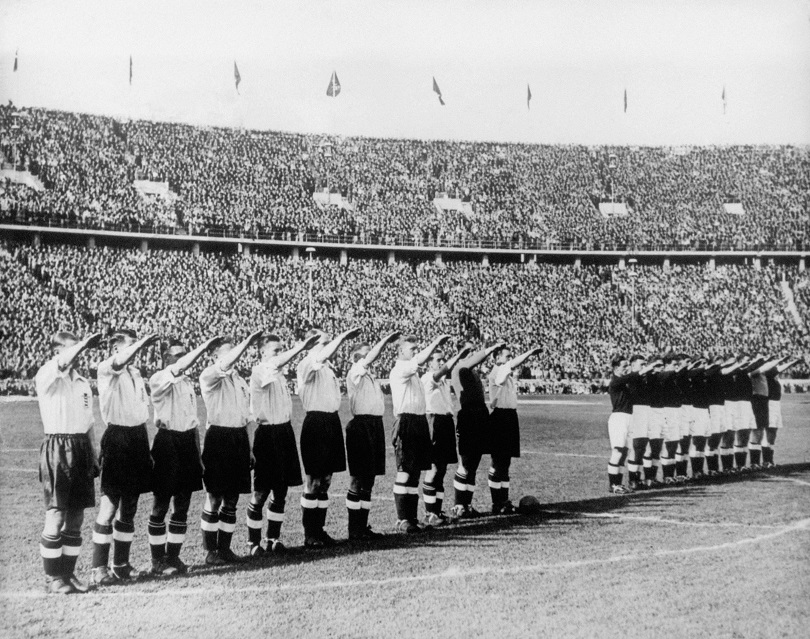
Perhaps understandably given the furore surrounding it, the match failed to ignite. Rather like the flag overhead, everything felt stuck at half-mast. Jimmy Catton, writing in The Observer, felt that the Germans were intent on not being overwhelmed in the first 20 minutes as the Italians had been at Highbury earlier in the year. “Defence was their policy,” he wrote. “They entered the arena with a conviction that they would be satisfied to draw. Eight of them were engaged in defence. The game was more like a ceremonial parade than an encounter.”
England attacked relentlessly without scoring. But as the first half drew to an anti-climatic close, Middlesbrough centre-forward George Camsell controlled a long pass from Manchester City’s John Bray and fired a curling shot past Germany keeper Hans Jacob to make it 1-0.
After 65 minutes, blond glamour-boy Szepan – the only German to make much of an impression – missed a good chance. The Germans were instantly punished. Arsenal’s Cliff Bastin dashed down the right, put in a high centre and Camsell nodded home his second. Two minutes later, Camsell returned the compliment, sliding in a ball for Bastin, who slotted home England’s third with his right foot.
"At the final whistle, the scene was a virtual love-in"
Though the German forwards demonstrated some slick passing, they made little impact on Arsenal’s defensive trio of George Male, Eddie Hapgood and William Crayston. England ran out 3-0 winners, although it hadn’t been a vintage performance: forwards Stanley Matthews and Raich Carter had endured poor games, with Matthews uncharacteristically missing three good early chances.
“I found myself up against a defender called Muezenberg,” he said afterwards. “I used my trademark body-swerve to race past him, but when I looked down, I didn’t have the ball! Muezenberg had tackled me with lightning speed and was racing for the England goal. Again and again, he outwitted me. I’d never found anyone who could outpace me in domestic football, and this was a shock.” The England legend later described the match as one of his worst moments in football, and he had to wait another two years for his next cap.
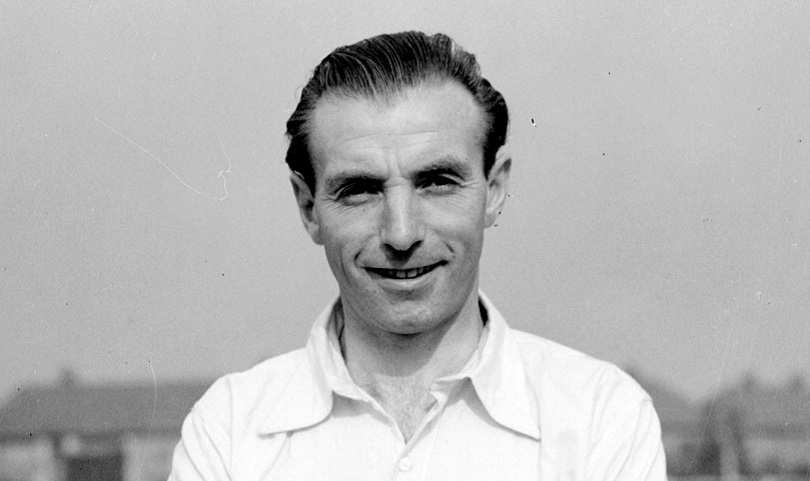
At the final whistle, however, the scene was a virtual love-in. The players left the pitch arm-in-arm, while German fans – who were under orders to be out of the country before nightfall – were waved and cheered at by England fans. The Daily Express declared that there had been “not one boo, not one real foul - the cleanest game ever seen”.
News from Germany’s Der Angriff, meanwhile, reported that the event had been an “unrestricted political, psychological and also sporting success”, adding: “Hermann Goering expressed his regret his team hadn’t managed a goal, but of course, the British are in a class of themselves in football.”
At a reception dinner for FA and German officials at the Victoria Hotel after the match, FA president Sir Charles Clegg castigated the TUC for interfering. “The sooner political bodies learn that football matches are not their business, the better it will be,” he said. W. Erbach, leader of the German team party, responded: “Your greetings made us forget we were apprentices at the football craft, attempting to compete with the masters.” A toast to Adolf Hitler was pledged immediately after one to the King.
But the back-slapping couldn’t last. The concerns of the Jewish community and anti-Nazi groups were soon proved correct, and within four years the two countries were at war. A football match between England and Germany could never be played without political connotations again.
This feature originally appeared in the January 2011 issue of FourFourTwo. Subscribe!
